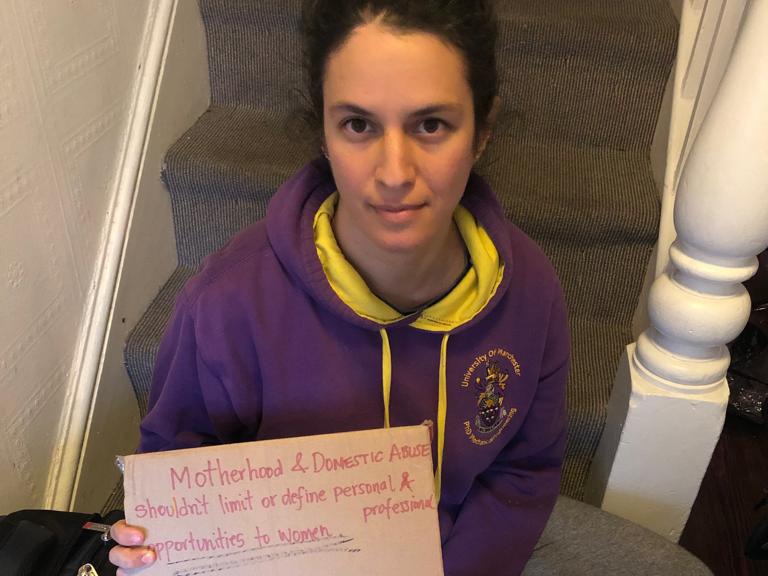Thousands rally behind pioneering cancer researcher facing jail and deportation over visa application error
Exclusive: ‘Groundbreaking’ researcher claims mistake was due to psychological issues

Your support helps us to tell the story
From reproductive rights to climate change to Big Tech, The Independent is on the ground when the story is developing. Whether it's investigating the financials of Elon Musk's pro-Trump PAC or producing our latest documentary, 'The A Word', which shines a light on the American women fighting for reproductive rights, we know how important it is to parse out the facts from the messaging.
At such a critical moment in US history, we need reporters on the ground. Your donation allows us to keep sending journalists to speak to both sides of the story.
The Independent is trusted by Americans across the entire political spectrum. And unlike many other quality news outlets, we choose not to lock Americans out of our reporting and analysis with paywalls. We believe quality journalism should be available to everyone, paid for by those who can afford it.
Your support makes all the difference.A PhD student carrying out pioneering research into prostate cancer is facing jail in the UK because of an administrative error on her visa application.
Mother-of-three Adriana Ortega-Zeifert, 39, originally from Mexico, failed to post the hard copies of the necessary documents to the Home Office in 2016, despite completing the relevant payments and forms online. She claims her mistake was due to psychological issues arising from her domestic situation, and the side-effects of Sertraline – an anti-depressant medication.
Ms Ortega-Zeifert had been researching cancer-associated fibroblasts at the University of Manchester, after being awarded a scholarship in Mexico, which her supervisor Professor Peter Gardener has described as “cutting-edge” and “groundbreaking” work. However, the university removed Ms Ortega-Zeifert from her research after her visa extension was rejected in 2016.
Politicians, academics and activists have since rallied behind Ms Ortega-Zeifert, accusing the University of Manchester and the government of supporting a “hostile environment policy” for migrant students in the UK. Almost 300 academics and students have signed an open letter, drawn up by the activist group Unis Resist Border Controls in support of her.
Some 2,500 people have also signed a petition on change.org which urges the government to give Ms Ortega-Zeifert leave to remain in the UK and for the University of Manchester to allow her to continue her research. She has also started a crowdfunding campaign to raise money for her application and legal costs. Jeff Smith, Labour MP for Manchester Withington, has said he is trying to help Ms Ortega-Zeifert, one of his constituents, to “resolve her situation successfully”.
Ms Ortega-Zeifert has also been standing in the Family Courts, where she is representing herself. Her ex-partner, who has since moved back to Mexico, is fighting for their children, 15, 13 and 11, to visit him there, but Ms Ortega-Zeifert’s visa dispute means if they leave they may not be allowed to return to the UK for up to 10 years. She now faces a court hearing on Wednesday and has been told by the Family Court that if she does not send her children to Mexico, she faces imprisonment in the UK for up to four weeks.
“I’m in limbo”, she told The Independent, adding if she goes to prison it will be “difficult to come back as a student, to travel, or even to apply for a job in another country. If I don’t finish my PhD, I can’t claim another scholarship. It’s given to you just once in your lifetime. If I [can’t] recover my scholarship, I still have to pay for the two and a half years I have left. All I want is safety for myself and my children.”
Dr Molly Geidel, a lecturer at the University of Manchester, member of Unis Resist Border Controls and Manchester UCU trade union executive, criticised the university’s treatment of Ms Ortega-Zeifert. “Instead of helping her through this difficult time, even if only in recognition of the invaluable contribution she was making to medical science, the university simply removed her. No pastoral care, no help with her immigration situation,” she said, adding that the “University of Manchester should be better than this”.
A spokesperson from the university said: “We understand this must be an extremely difficult time for Adriana and her family. However, we can only follow the immigration rules set out by the government. Unfortunately, as Adriana is unable to provide evidence of valid immigration permission, we could not maintain her registration.”
When contacted, the Home Office said they do not routinely comment on individual cases but “all UK visa applications are considered on their individual merits, on the basis of the evidence available, and in line with the immigration rules”.
Join our commenting forum
Join thought-provoking conversations, follow other Independent readers and see their replies
Comments